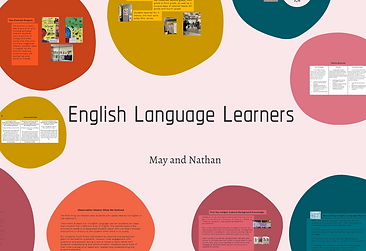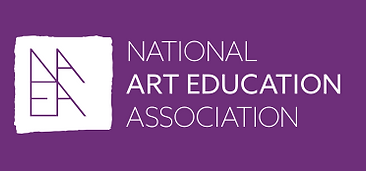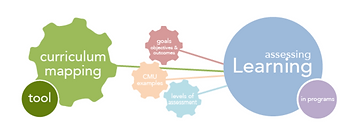MayKou Ly
Art Educator
Elementary Art Education
Elementary Curriculum
A course to engage with practices, theories, and discourses individually and collaboratively within art education.

Practicum: Whitehead Road Elementary School
Developing and teaching a lesson in a local school.
Contemporary Art Lesson Plans: A combination of a collaborative lesson plan and an individual unit plan.
An eight-week observation was at a local placement school, where we observed and took notes and pictures of students' work. The collaborative lesson plan structure includes setting an objective and developing a lesson plan that reflects the purpose, students' engagement, and the results of the coordinated lesson plan.
Collaborate Lesson Plan
TAPS Standards 1, 2, 3 & 5
Planning
Standard 1. Professional Knowledge
The teacher demonstrates an understanding of the curriculum, subject content, pedagogical knowledge, and the needs of students by providing relevant learning experiences.
Standard 2. Instructional Planning
The teacher plans using state and local school district curricula and standards, effective strategies, resources, and data to address the differentiated needs of all students.
Instructional Delivery
Standard 3. Instructional Strategies
The teacher promotes student learning by using research-based instructional strategies relevant to the content to engage students in active learning and to facilitate the students’ acquisition of key knowledge and skills.
Assessment Of and For Learning
Standard 5. Assessment Strategies
The teacher systematically chooses a variety of diagnostic, formative, and summative assessment strategies and instruments that are valid and appropriate for the content and student population.
Individual Unit Plan

Collaborative Case Study
Presentation
Case Study:
English Language Learner (ELL)
Plan for Differentiated Instruction & Presentation
This case study addressed on specific learning need(s) observed at a local public school in addition to do research for better understanding aimed at developing strategies for differentiating instruction to meet students' needs.
TAPS Standards 3 & 4
Instructional Delivery
Standard 3. Instructional Strategies
The teacher promotes student learning by using research-based instructional strategies relevant to the content to engage students in active learning and to facilitate the students’ acquisition of key knowledge and skills.
Standard 4. Differentiated Instruction
The teacher challenges and supports each student’s learning by providing appropriate content and developing skills which address individual learning differences.

NAEA Webinar Response
National Art Educators Association (NAEA)
Written Response to NAEA Webinar:
Connecting With English Language Learners in the Visual Arts Classroom.
This is a written response to webinar content and related readings, which includes opinions, suggestions, questions, and support resources. It also allows me to communicate with my other peers in my class and my instructor.
TAPS Standards 9
Professionalism and Communication
Standard 3. Professionalism
The teacher exhibits a commitment to professional ethics and the
school’s mission, participates in professional growth opportunities to support student learning, and contributes to the profession.

One Year Curriculum
Scope & Sequence
Curriculum Map
A hypothetical curriculum plan for one grade level for a full school year.
Elementary visual arts curriculum is organized in units with artistic processes, standards related to technical skill & conceptual development.
TAPS Standards 1, 2 & 5
Planning
Standard 1. Professional Knowledge
The teacher demonstrates an understanding of the curriculum, subject content, pedagogical knowledge, and the needs of students by providing relevant learning experiences.
Standard 2. Instructional Planning
The teacher plans using state and local school district curricula and standards, effective strategies, resources, and data to address the differentiated needs of all students.
Assessment Of and For Learning
Standard 5. Assessment Strategies
The teacher systematically chooses a variety of diagnostic, formative, and summative assessment strategies and instruments that are valid and appropriate for the content and student population.